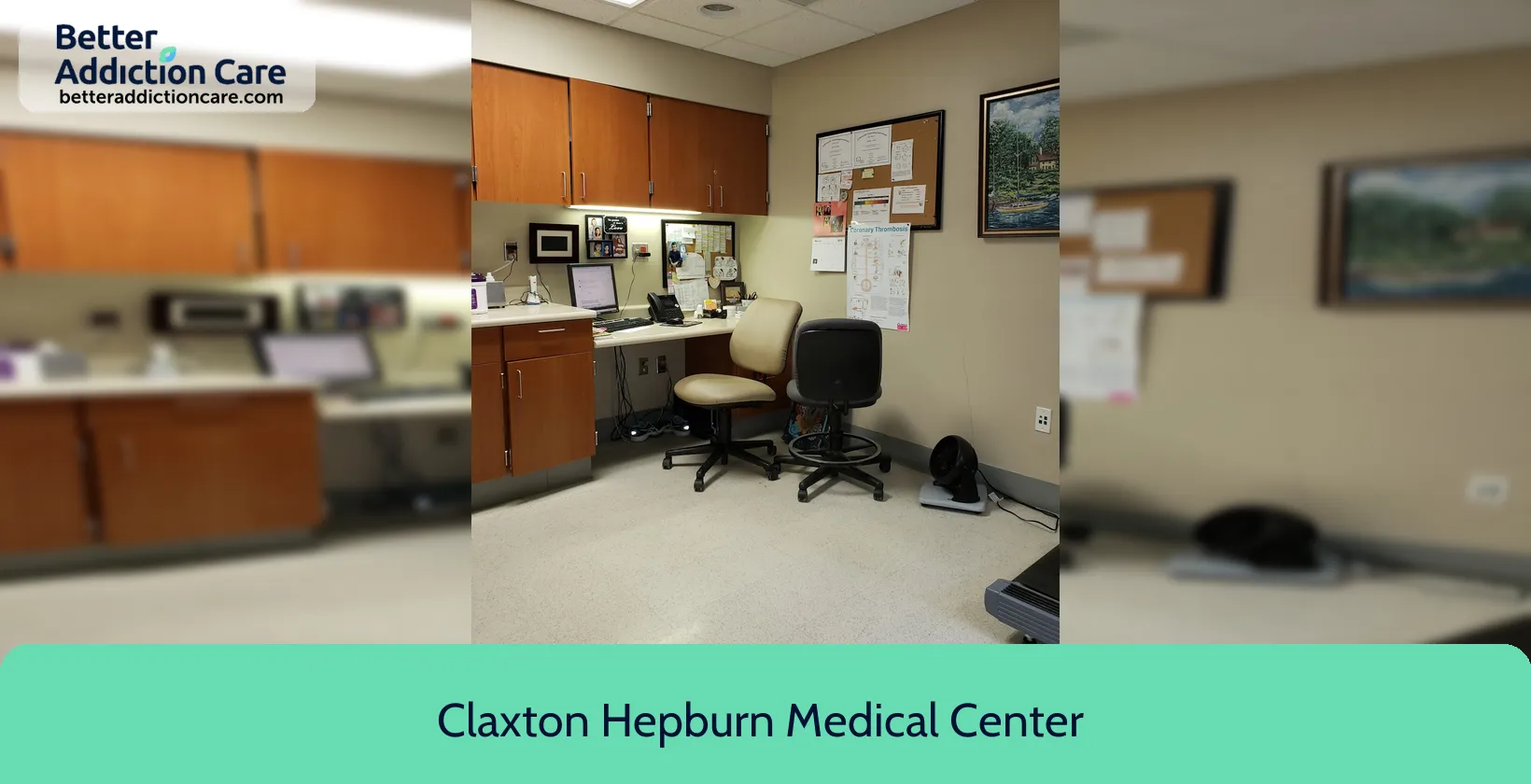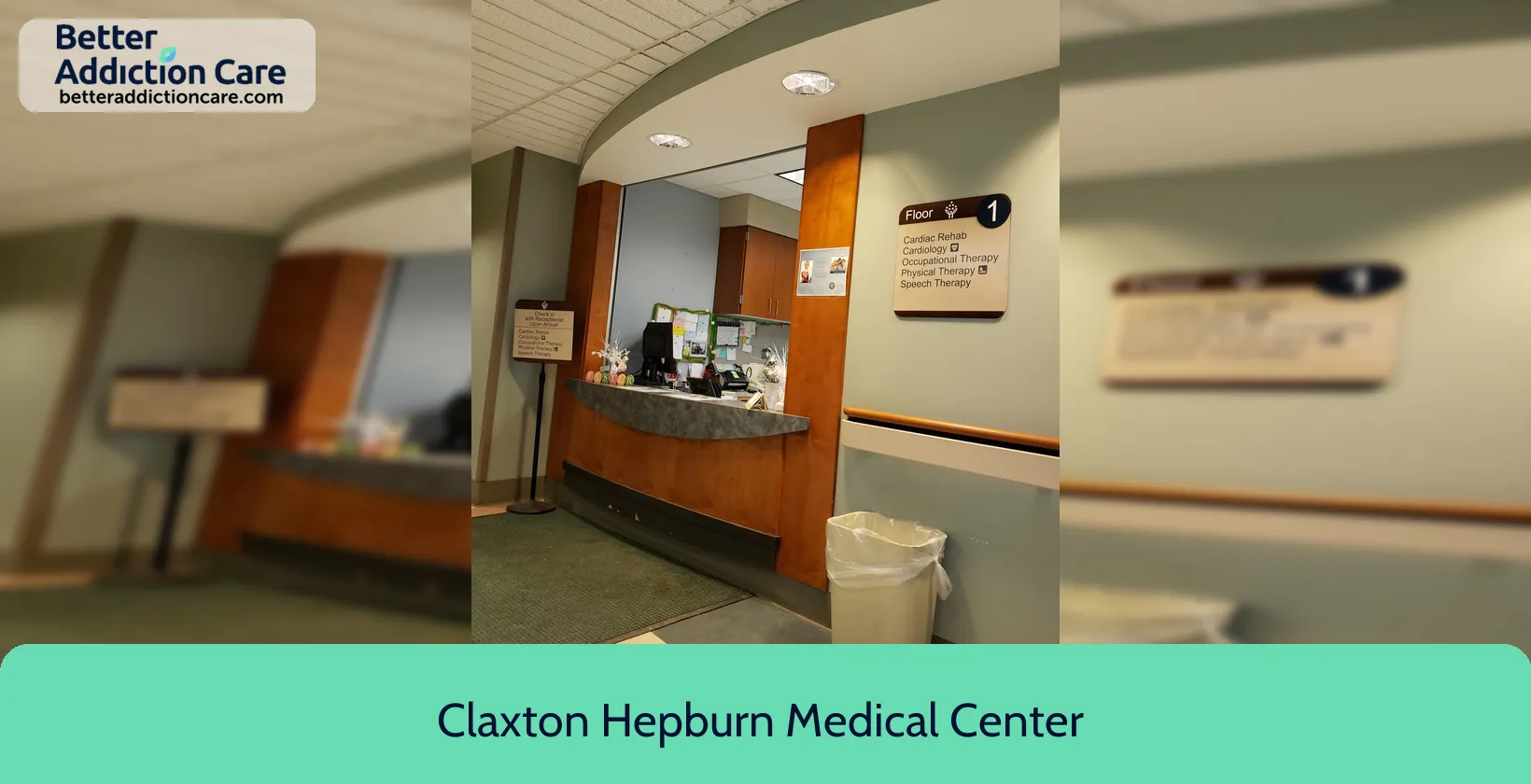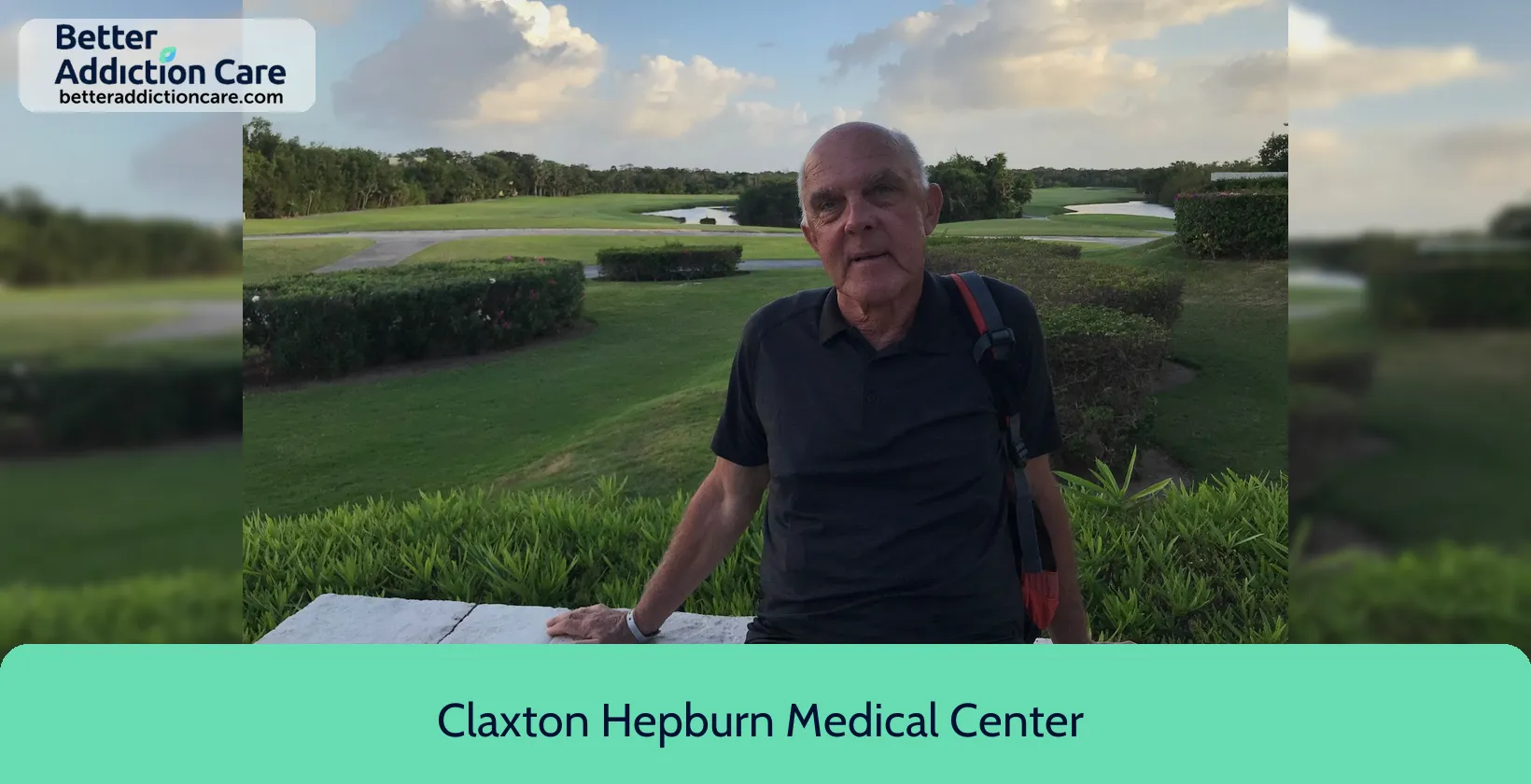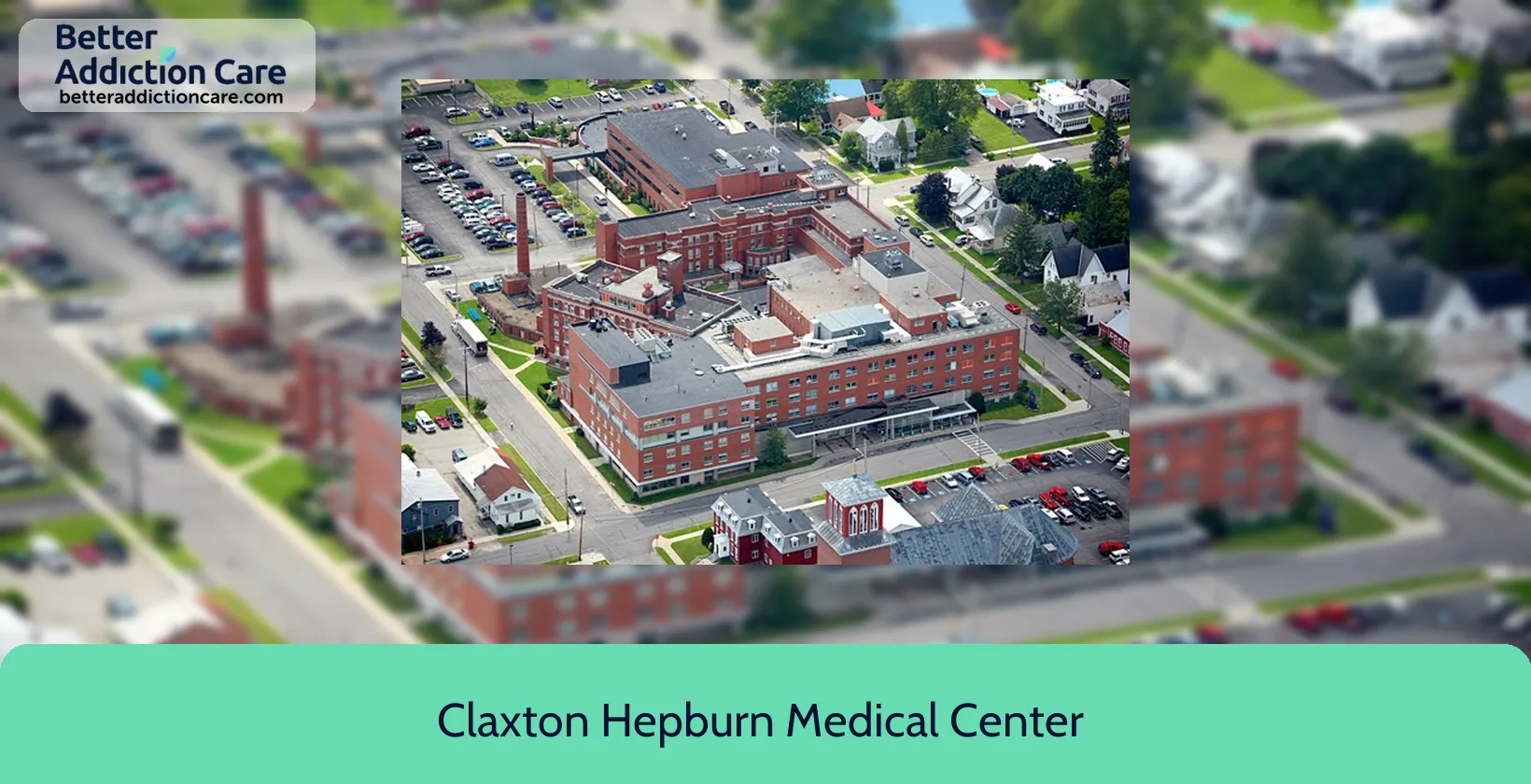Claxton Hepburn Medical Center - Mental Health Unit
Overview
Claxton Hepburn Medical Center - Mental Health Unit is a mental health treatment center for people seeking treatment near Saint Lawrence County. As part of their treatment modalities for recovery, Claxton Hepburn Medical Center - Mental Health Unit provides couples/family therapy, group counseling, and cognitive behavioral therapy during treatment. Claxton Hepburn Medical Center - Mental Health Unit is located in Ogdensburg, New York, accepting cash or self-payment for treatment.
Claxton Hepburn Medical Center - Mental Health Unit at a Glance
Payment Options
- Cash or self-payment
- Medicaid
- Medicare
- State-financed health insurance plan other than Medicaid
- Private health insurance
Assessments
- Screening for tobacco use
- Comprehensive mental health assessment
- Comprehensive substance use assessment
Age Groups
- Young adults
- Adults
- Seniors
Ancillary Services
- Chronic disease/illness management
- Court-ordered outpatient treatment
- Diet and exercise counseling
- Education services
- Family psychoeducation
Highlights About Claxton Hepburn Medical Center - Mental Health Unit
6.68/10
With an overall rating of 6.68/10, this facility has following balanced range of services. Alcohol Rehabilitation: 8.00/10, Drug Rehab and Detox: 6.00/10, Insurance and Payments: 6.00/10, Treatment Options: 6.73/10.-
Alcohol Rehabilitation 8.00
-
Treatment Options 6.73
-
Drug Rehab and Detox 6.00
-
Insurance and Payments 6.00
Treatment At Claxton Hepburn Medical Center - Mental Health Unit
Treatment Conditions
- Mental health treatment
- Substance use treatment
- Co-occurring Disorders
Care Levels
- Hospital inpatient/24-hour hospital inpatient
Treatment Modalities
- Couples/family therapy
- Group counseling
- Cognitive behavioral therapy
- Activity therapy
- Electroconvulsive therapy
Ancillary Services
Languages
- Sign language services for the deaf and hard of hearing
- Spanish
- Other languages (excluding Spanish)
- Hindi
Additional Services
- Pharmacotherapies administered during treatment
- Metabolic syndrome monitoring
Special Programs
- Persons 18 and older with serious mental illness (SMI)
Get Help Now
Common Questions About Claxton Hepburn Medical Center - Mental Health Unit
Contact Information
Other Facilities in Ogdensburg

7.40
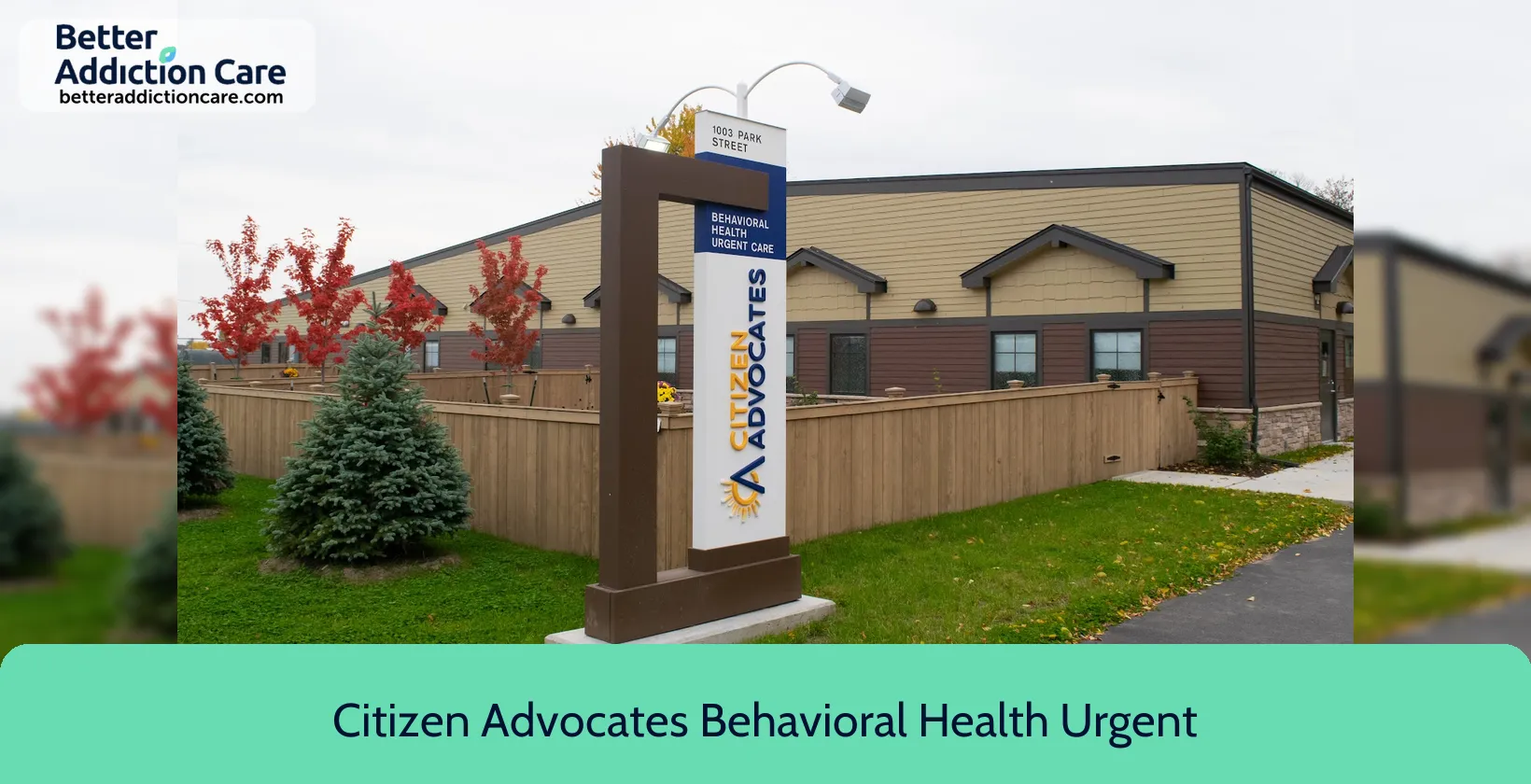
7.33
DISCLAIMER: The facility name, logo and brand are the property and registered trademarks of Citizen Advocates Behavioral Health Urgent Care Center, and are being used for identification and informational purposes only. Use of these names, logos and brands shall not imply endorsement. BetterAddictionCare.com is not affiliated with or sponsored by Citizen Advocates Behavioral Health Urgent Care Center.
